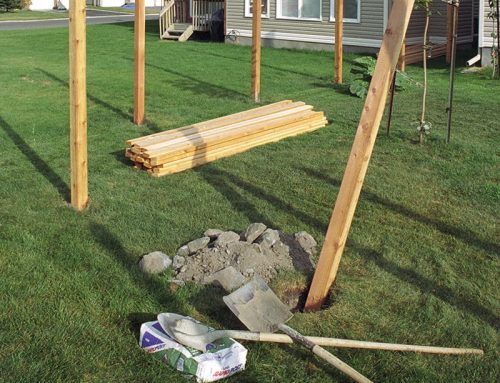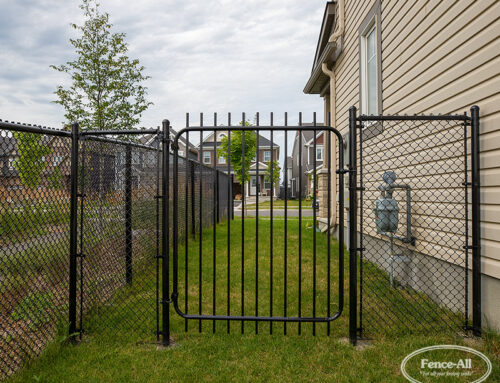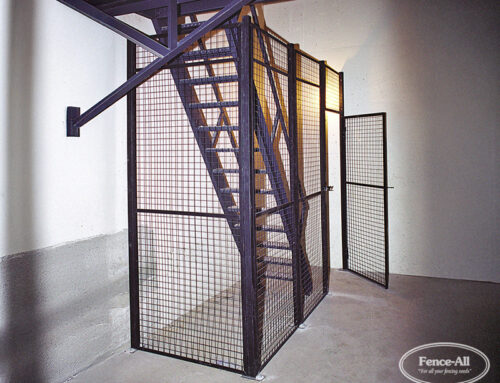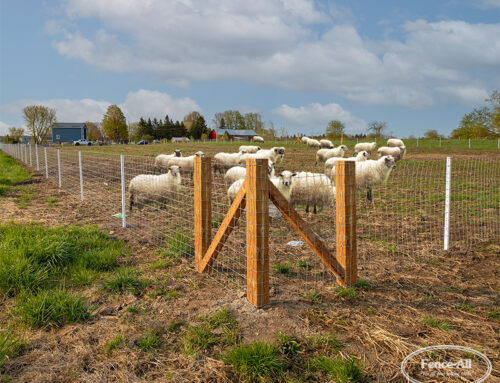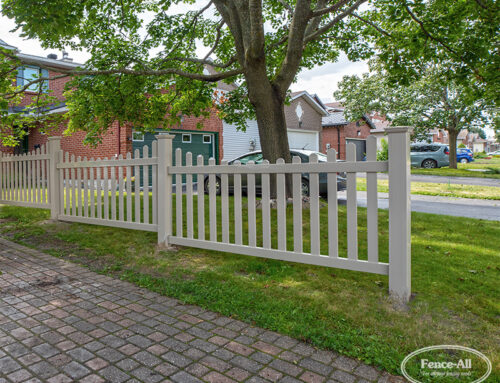We strongly discourage it. It doesn’t work out well for your fence or your garden, and ultimately your pocketbook.
Here’s why it’s bad for your fence
Warranty Trouble: Anything attached to or growing into your fence will void your warranty.
Plant Growth and Pressure: As plants grow, their roots expand and exert pressure on nearby structures, including fences. When a garden is built directly against a fence, the growing plants can push against the fence, leading to warping, bending, or even breaking of the fence. This pressure can be more pronounced if the plants are large or have aggressive root systems.
Moisture Retention: When a garden is positioned directly against a fence, moisture from watering or rainfall can accumulate and become trapped between the plants and the fence. Prolonged moisture exposure can lead to rotting or decay of the fence materials, especially if the fence is made of wood.
Lack of Air Circulation: Having plants tightly packed against a fence restricts air circulation around the fence. Without adequate airflow, moisture can linger, increasing the chances of mold, mildew, or fungus growth on the fence. These can cause discoloration, deterioration, and damage to the fence material.
Increased Risk of Pest Infestation: When plants are in close proximity to a fence, they can create a hiding place and a bridge for pests to access the fence. Insects and rodents may find refuge in the garden, and their presence can lead to potential damage to the fence, such as chewing on wood or digging burrows near the base.
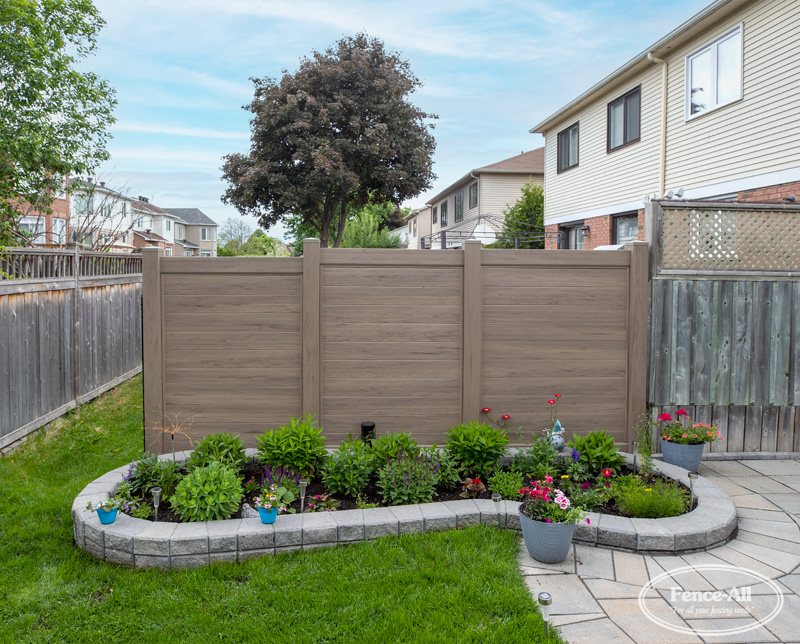
A job well done: note how the gardening and the Bridgeport in Green Teak are separated here.
And here’s why it’s bad for your garden
Limited Sunlight:
One of the primary concerns when placing a garden against a fence is the limited exposure to sunlight. Fences can cast shadows for a significant portion of the day, blocking crucial sunlight that plants need for photosynthesis. Sun-loving plants may struggle to thrive in this environment, resulting in stunted growth and diminished flowering or fruiting.
Lack of Air Circulation:
Plants require proper air circulation to maintain healthy growth. When a garden is positioned tightly against a fence, the natural airflow can be impeded. Insufficient air movement increases the risk of diseases, such as fungal infections, as well as the likelihood of pest infestations.
Nutrient Competition:
In a garden against a fence, plants may compete for vital nutrients from the soil. The confined space limits the availability of nutrients, as nearby plants draw from the same resources. This can result in nutrient deficiencies, negatively impacting plant growth and overall health. Additionally, invasive plants may dominate the limited space, choking out neighboring plants and creating an imbalance within the garden ecosystem.
Access and Maintenance Challenges:
Gardens placed directly against a fence can present accessibility and maintenance challenges. It becomes difficult to reach the back of the garden for planting, pruning, or general upkeep. This limitation can discourage regular maintenance, leading to neglected areas and increased weed growth. Furthermore, fences can make it cumbersome to use garden tools effectively, potentially damaging both the plants and the fence itself.
We hope we’ve convinced you!
We get this question about gardens fairly frequently so we want to be crystal clear: keeping your garden and your fence separate gives both the best chance for a long and healthy life.
More questions?
If you have more questions about gardens, fences, or other subjects we’re happy to answer them. Call 613-736-1122 or hit the chat button on the right during business hours.



